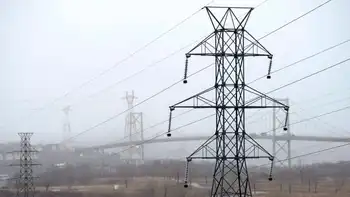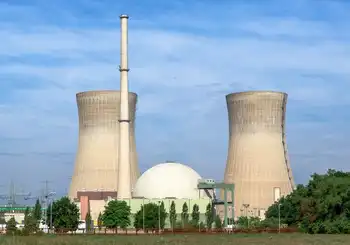Geothermal is heating up
By Denver Post
Arc Flash Training CSA Z462 - Electrical Safety Essentials
Our customized live online or in‑person group training can be delivered to your staff at your location.

- Live Online
- 6 hours Instructor-led
- Group Training Available
Schwartz was explaining to me why she's sponsoring Senate Bill 174, which, among other things, would give local communities more oversight in attempts to mine underground heat to produce electric power. Last month, the BLM was all set to lease 800 acres for geothermal development in the Chalk Creek Valley in Chaffee County near Mount Princeton, but postponed the action in the face of local alarm.
Some residents apparently didn't even know until recently that the government owns the resource under their land — which the BLM treats as a mineral — much less that the agency was poised to lease it.
Still, residents near the hot springs achieved a delay, not a reprieve. And the momentum for geothermal development — as for any renewable energy — is only going to grow. Not only are the political administrations in Washington and Colorado eager to see such projects, but the environmental groups that would man the barricades against any other drilling on the same acreage, citing concerns over habitat and scenery, are predictably missing in action.
It's easy to understand at least some of this enthusiasm. Geothermal power plants produce essentially no emissions. They occupy less land than wind and solar plants for the same energy output. And unlike wind and solar, geothermal electricity is available 2 4/7. It doesn't falter when the wind dies or the sun goes down. It doesn't have to be backed up with fossil fuels.
For that matter, geothermal's long-term potential is apparently huge. A panel led by MIT concluded three years ago that mining heat "could supply a substantial portion of the electricity the United States will need in the future, probably at competitive prices and with minimal environmental impact."
But does that claim of "minimal environmental impact" include the Chalk Creek Valley? "You could easily lose a power plant at Mount Princeton," Paul Morgan, senior geothermal geologist at the Colorado Geological Survey, assures me. He means the local topography is such that a plant could be tucked away where it would hardly be noticed.
Alternatively, he says, you could locate the 10-megawatt plant up to 11 miles away and pipe the hot water to it while losing only about 1 degree of heat per mile. It's a lot easier to hide or disguise a pipe than an 8-acre plant — although maybe not for those whose property it crosses. The split estates in the Chalk Creek Valley almost guarantee passionate resistance by private landowners. And who can blame them given existing uncertainties?
It might be far better if the first geothermal power plant in Colorado were located where such conflicts aren't as sharp. And maybe it will be. Two days ago, the BLM and Forest Service hosted a meeting at Western State College in Gunnison about proposals to lease up to 9,000 acres of mostly public lands for geothermal development near Waunita Hot Springs. Nothing has been decided yet, the BLM's Vanessa Delgado told me, but renewable energy companies are interested.
A viable geothermal resource requires more than just hot water (at least 300 degrees Fahrenheit). As Morgan explains, it also needs "very high-producing wells, wells that are capable of flowing at hundreds of gallons per minute or higher."
Within the next two years, he predicts, a 2,500-foot hole will be drilled near one of Colorado's hot springs that will provide answers.
How confident is he that the temperature will be sufficient? "Nine-five percent sure," he says.
And water flow? "About 75 percent."
Good odds, in other words. Yet clearly not a lock.











